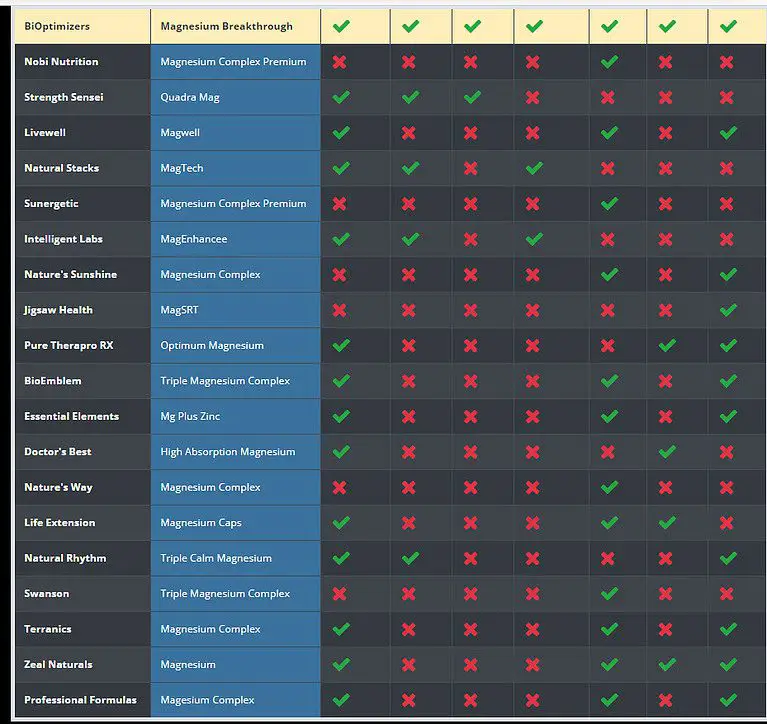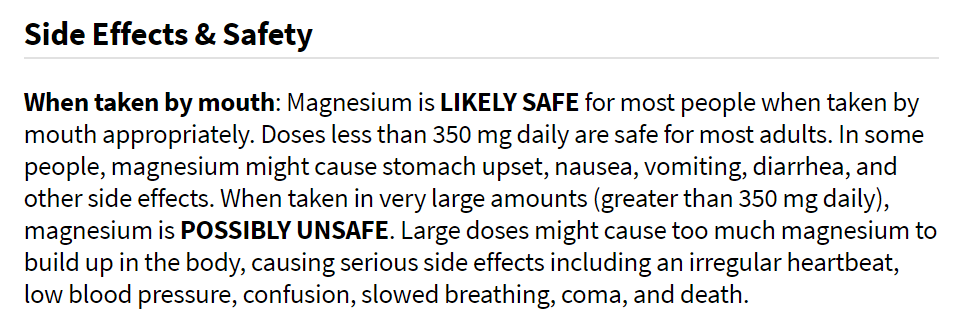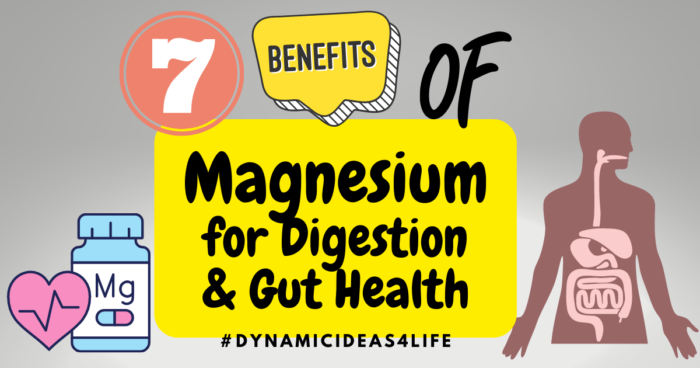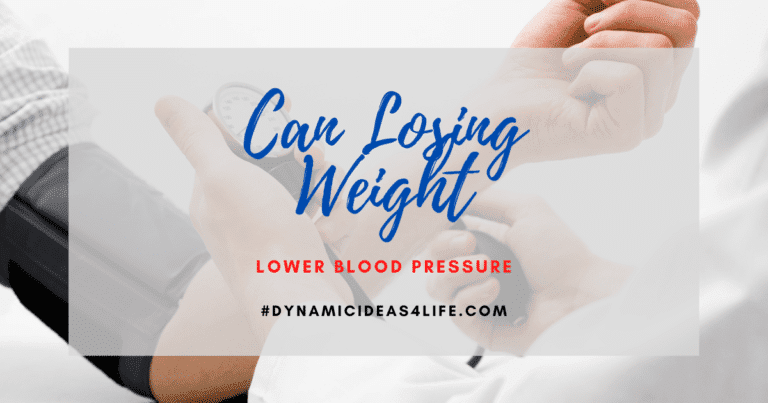
What are The Signs and Symptoms of Low Magnesium? This might not be something that a lot of people will even think about. It may be a question that many will not be aware of until they actually read about it or they suffer from it and are told by doctors. But, what may surprise people is this -that Low Magnesium aka. Hypomagnesia is actually very common.
Hypomagnesia is an adverse health condition where the body is dangerously low in levels of Magnesium. This is an essential mineral that we all need in small but sufficient amounts alongside other electrolytes such as Zinc and Potassium.
I don’t want to scare people with this information but for anybody that wants to find out more, about this condition – this is something that I will be looking at further throughout this post today.
Some signs and symptoms of low magnesium can include;
- Trouble Sleeping
- Fatigue
- Spasms
- Muscle Weakness
- and High Blood Pressure
Typical things that we may suffer from without really thinking about what the cause may be, but all are possible Signs and Symptoms of Low Magnesium. Exactly what we will be looking at in today’s article.
So now let’s dive in and find out more but before we do…
What Are the Signs and Symptoms of Low Magnesium?
As humans, our body needs Magnesium for all the following things;
- ✅ To Keep Our Blood Pressure Normal!
- ✅ Making Our Bones, and Muscles Stronger!
- ✅ Keeping our Biorhythm in Sync
- ✅ Nerve Function!
- ✅ Synthesis of DNA
- ✅ Healthy Blood Sugar Levels! and…
- ✅ Regulation of Hormones such as Leptin, Insulin, and Melatonin (for sleep)!
According to Holland and Barrett, a well-known supplier of health products based in the UK – our bodies use magnesium in some 300! different biochemical reactions.
These include everything mentioned above plus much, much more. Including keeping our metabolism in working order and keeping our heart beating as it normally should.
For these natural processes alone magnesium is an essential nutrient that is vital for good health.
But, What are The Signs and Symptoms of Low Magnesium? These answers may very well surprise you.
So, How Do We Know If We Have Low Magnesium?
Early signs that you could have low Magnesium levels include general fatigue, tiredness, nausea, and loss of appetite. In more extreme cases people may have trouble sleeping, muscle cramps, spasms, irregular heartbeat, and even seizures.
Magnesium Deficiency is not always easy to diagnose with complete accuracy although these are all known to be signs and symptoms.
However, one common cause is likely low magnesium intake. Usually down to diet, and actually, this is how this condition affects such a large number of people.
In fact, nearly everyone is believed to be magnesium deficient in one way or another.
And generally, symptoms of Magnesium Deficiency are outlined in 2 categories.
- Classical: These are the symptoms defined by the physiological signs as mentioned above and
- Latent or “Sub Clinical”: Latent symptoms or those that may not actually be Magnesium Deficiency but something else. {Read More HERE}
I hope this goes some way to explain things. I will continue this article with a bit more information below and a possible solution. If this is something that interests you then please keep reading. Now…
How To Tell If You Are Magnesium Deficient?
So, If you suffer from any of the signs and symptoms of low magnesium mentioned above then you may very well be Magnesium Deficient.
If you think you are – you may want to further explore one of two things;
Either 1.) Increasing your Magnesium levels in your diet with things like Nuts, Seeds, and Magnesium Drinks, or 2.) You can try a Magnesium Complex Supplement. Which is actually something I do myself.
I actually have a product to share that I think is really good here but just quickly let’s take a look at a few dietary options that may be a bit more cost-effective;
Magnesium-Rich Food Ideas (Dietary Options)

One of the best ways to increase your magnesium intake is through your diet. Some magnesium-rich foods that you can include in your meals are:
- Spinach: One cup of cooked spinach contains 157 mg of magnesium.
- Almonds: A 1-ounce serving of almonds contains 80 mg of magnesium.
- Avocado: One medium-sized avocado contains 58 mg of magnesium.
- Black Beans: One cup of cooked black beans contains 120 mg of magnesium.
- Salmon: A 3-ounce serving of salmon contains 26 mg of magnesium.
- Dark Chocolate: One ounce of dark chocolate contains 64 mg of magnesium.
- Pumpkin Seeds: A 1-ounce serving of pumpkin seeds contains 150 mg of magnesium.
- Yogurt: One cup of plain yogurt contains 47 mg of magnesium.
- Bananas: One medium-sized banana contains 32 mg of magnesium.
- Quinoa: One cup of cooked quinoa contains 118 mg of magnesium.
- Tofu: A 3.5-ounce serving of tofu contains 53 mg of magnesium.
- Brown Rice: One cup of cooked brown rice contains 84 mg of magnesium.
By incorporating these foods into your diet, you can boost your magnesium intake and potentially alleviate some of the symptoms of low magnesium.
As For Magnesium Complex Supplements
One product I have personally tried that I recommend is Magnesium Breakthrough. If you have a magnesium deficiency it is not the only option available but according to my research, it is one of the best supplements I’ve come across so far. It’s not too pricey either – for 1 bottle you can get one for $29.95
In my experience, this supplement has been good for two things high blood pressure and sleep support.

Inside Mg. Breakthrough ingredients include 8 types of Magnesium plus a humic/fulvic monatomic blend with Vitamin B6 and Manganese. If you check the chart below you can see all the benefits of this product over its competition.

In the top bar are the different types of Magnesium included in each supplement. This is not pictured 👀
You can check out my product review here if you would like to investigate further. [Read It Here<<]
This is actually unlike other BiOptimizers products I have reviewed before. Not because of quality, I don’t mean that but the data which is actually provided on its sales page. This includes testimonials from doctors which I will post below and several links to scientific studies which I will share at the bottom of this post;

I will leave this here for now about this supplement but if you are interested…
Why Treatment for Low Magnesium Is Important
Low magnesium levels have been linked with a number of severe health conditions including;
- osteoporosis,
- heart disease,
- diabetes,
- high blood pressure,
- clogged arteries,
- strokes
- and chronic stress.
One of the most common signs of low magnesium is muscle twitches and cramps. Magnesium is essential for proper muscle function, and low levels can cause involuntary contractions and spasms. These symptoms can occur in any muscle but are most common in the legs, feet, and eyelids.
Another symptom of low magnesium is fatigue and weakness. Magnesium is necessary for the production of ATP, the body’s primary energy source. Without enough magnesium, the body may struggle to produce enough energy, leading to feelings of tiredness and weakness.
Low magnesium levels can also lead to an irregular heartbeat. Magnesium is essential for the proper functioning of the heart, and a deficiency can cause arrhythmias or irregular heartbeats. In severe cases, this can lead to more serious heart conditions, such as heart failure.
Magnesium deficiency can also have an impact on mental health. Low levels of magnesium have been linked to an increased risk of anxiety and depression. Magnesium helps to regulate the production of neurotransmitters like serotonin, which can affect mood and mental health.
Another symptom of low magnesium is insomnia. Magnesium is involved in the regulation of the sleep-wake cycle, and low levels can lead to difficulty falling or staying asleep. This can have a significant impact on overall health and well-being, as sleep is essential for many physiological processes, including tissue repair and cognitive function.
Lastly, low magnesium levels can cause headaches. Magnesium helps to regulate blood flow, and low levels can lead to constriction of blood vessels, which can cause headaches.
In some cases, this can be a significant trigger for migraines.
How to Test for Low Serum Magnesium Levels
As mentioned above the signs and symptoms of low magnesium are classed as “classical” and “latent”. Both are extremely common, but actually, it is very difficult to diagnose somebody with magnesium deficiency. The main problem is this. That inside our bodies 99% of magnesium is found inside cells and only 1% inside our blood. So available testing methods do not really yield the desired results.
The one test that is used “the serum test for magnesium” has been called out as being worse than ineffective, because a test result that is within normal limits lends a false sense of security about the status of the mineral in the body
Still, Magnesium is a highly important component of our biology. Taking it in the form of supplements or by consuming certain foods high in this mineral especially is a very good idea.
I think based on my own experience you can (kind of) tell if you’re low on magnesium. If you notice things like muscle spasms or twitches, you have trouble sleeping or your heart doesn’t feel like it is beating right this is likely the case.
Also, If you drink alcohol for instance, and are left urinating frequently and sweating the alcohol out this can be leaving your electrolytes in short supply. Hence why hangovers can feel so brutal. But then…
How About Too Much Magnesium?
Taking supplements such as Magnesium Breakthrough are generally safe to take but the general rule of thumb is if you are over the age of 8 years old do not take more than 350g. This information is NOT actually from the Bioptimizers website it is from WebMD and actually, it covers all Magnesium Supplements. Not just Magnesium Breakthrough. Here is what it says (See Below);

So short answer YES you can take too much Magnesium. But 350 mg daily is a lot. This is equivalent to 30+ capsules of your typical Magnesium supplement. And why would anyone do this 🤨
However, Hypermagnesia (High Magnesium) is a known health condition so definitely bear this in mind.
So How Much Magnesium Does The Human Body Need?
In my own experience, two capsules of Magnesium a day (just over 16 mg.) is plenty but you can take more if you feel the need and you can even take less if you feel like say one capsule does the job for you.
However, another thing to consider is the human body needs different Magnesium compounds. It is also important to make sure you are getting different sources of Magnesium. Plus you should also make sure your body is absorbing nutrients such as Vitamin B6 to help get electrolytes such as Magnesium into your bloodstream and cells. You probably don’t need to go too crazy if you are not experiencing symptoms like those I mentioned but typically looking into different Magnesium supplements really is not a bad idea.
My Final Thoughts
Magnesium is not the only important mineral that a healthy body requires. Also, there is Calcium, Potassium, Iron, Sodium, and Zinc. Even Sulphur. However, if you have taken the time to read the above content then you will know, or at least have some kind of vague idea about how important Magnesium is.
For me, it made a huge difference when I started taking it. My blood pressure was off the chart. I considered a few different solutions but after taking Magnesium supplements for just a couple of weeks I see a HUGE difference.
So Magnesium deficiency if you believe you have it definitely look to improve your diet to more magnesium-rich foods. Consider taking magnesium supplements if you feel the need to do so. Even if they are just the cheap ones from the supermarket. Although ideally look for a full-spectrum magnesium complex supplement.
If you are searching online take a look at the Magnesium Breakthrough website. It is basically a sales page but the best part is that on all Bioptimizers products, they offer a 365-day full money-back guarantee.

References
[1] https://www.sharecare.com/health/magnesium/why-stress-cause-magnesium-deficiency
[2] https://www.ncbi.nlm.nih.gov/pmc/articles/PMC3198864/
[3] https://news.yale.edu/2000/09/22/study-stress-may-cause-excess-abdominal-fat-otherwise-slender-women
[4] https://www.mayoclinic.org/healthy-lifestyle/stress-management/in-depth/stress/art-20046037
[5]https://www.sleepfoundation.org/articles/stress-and-insomnia
[6]https://www.ncbi.nlm.nih.gov/pubmed/17937582
[7] https://www.ncbi.nlm.nih.gov/pubmed/1425110
[8]https://www.ncbi.nlm.nih.gov/pmc/articles/PMC4289126/
[9]https://www.ncbi.nlm.nih.gov/pmc/articles/PMC2959081/
[10]https://www.ncbi.nlm.nih.gov/pmc/articles/PMC5452159/
[11]https://www.ncbi.nlm.nih.gov/pmc/articles/PMC4455825/
[12] https://www.ncbi.nlm.nih.gov/pubmed/14506478
[13] https://www.health.harvard.edu/heart-health/magnesium-helps-the-heart-keep-its-mettle
[14] https://www.ncbi.nlm.nih.gov/pmc/articles/PMC3775240/
[15]https://www.ncbi.nlm.nih.gov/books/NBK507250/
[16]https://www.sciencedirect.com/science/article/pii/S0167488904002630
[17]https://www.drugs.com/mtm/chelated-magnesium.html
[18]https://trialsjournal.biomedcentral.com/articles/10.1186/s13063-019-3414-4
[19]https://www.webmd.com/drugs/2/drug-152090/magnesium-glycinate-oral/details
[20] https://www.ncbi.nlm.nih.gov/pubmed/29679349
[21]https://www.webmd.com/brain/news/20100127/magnesium-may-improve-memory
[22] https://www.ncbi.nlm.nih.gov/pubmed/8692051
[23] https://www.ncbi.nlm.nih.gov/pubmed/9794088
[24] https://www.ncbi.nlm.nih.gov/pubmed/24465574
[25]https://www.ncbi.nlm.nih.gov/pubmed/25008857
[26] https://www.ncbi.nlm.nih.gov/pubmed/24015935
[27]https://www.ncbi.nlm.nih.gov/pubmed/9794094
[28]https://www.ncbi.nlm.nih.gov/pubmed/23950577
[29]https://www.ncbi.nlm.nih.gov/pubmed/16542786
[30]https://www.ncbi.nlm.nih.gov/pubmed/19271419
[31] https://www.ncbi.nlm.nih.gov/pubmed/20807870
[32]https://www.ncbi.nlm.nih.gov/pubmed/12663588
[33]https://www.ncbi.nlm.nih.gov/pubmed/19020533
[34]https://www.ncbi.nlm.nih.gov/pubmed/21199787
[35] https://www.ncbi.nlm.nih.gov/pubmed/12786918
[36] https://www.ncbi.nlm.nih.gov/pubmed/25278139
[37] https://www.ncbi.nlm.nih.gov/pubmed/22364157
[38] https://www.ncbi.nlm.nih.gov/pubmed/24084051
[39] https://www.ncbi.nlm.nih.gov/pubmed/12663588
[40] https://www.ncbi.nlm.nih.gov/pubmed/2067759
Related Posts
Anxiety and Depression BiOptimizers blood pressure supplements blood sugar control blood sugar support supplements cognitive function digestive enzymes digital products Dr Sam Robbins Exercise Gut Health Gut Health While Travelling Health Tips for Travelling Healthy Living heart health HFL how to lower blood sugar levels How To Lower Cholesterol insulin resistance joint health supplement keto dieting Keto Diet Weight Loss leaky gut supplements list Magnesium deficiency Matt Gallant mental health multivitamins Nootopia Nootropics Probiotics Probiotic Supplements proteolytic enzymes reverse type 2 diabetes stress and anxiety stress relief Supplements vitabalance vitapost Wade Lightheart weight loss articles weight loss diet plans weight loss product reviews weight loss supplements weight loss tea










Magnesium breakthrough sounds like a great product. Thank you for also including foods that are high in magnesium. My wife suffers from muscle weakness/pain issues and doctors always want her to “”mask” the issue with pain relievers which do not help. She also struggles with getting quality sleep due to the pain and it sounds like magnesium could help with both issues. Your article was educational and we will be trying out some of your suggestions. we will also pay close attention to the pros and cons.
Hi James, Excellent. I think we could all do with more magnesium in our diets. Zinc also. Anyway, this could be the answer you are looking for if you could maybe bookmark the page for later you can read again maybe.
Thanks for this. I really appreciate the important information you have provided here. You said that magnesium deficiency has many symptoms but may not be easy to diagnose definitively. You quoted a doctor saying that low magnesium to calcium ratio in the cells is a warning sign. But it sounds to me that this would not be something revealed by a regular blood test. My wife has been concerned about low magnesium in her diet for a while and has sought to address this principally through dietary changes. She seems to have reversed the situation and early warning symptoms in this way. But it is good to know about Magnesium Breakthrough because of the value of all the different forms of magnesium it contains. Thanks very much for this. Best regards
Thanks for taking the time to reply Andy, and I’m glad to hear that there is some substance here. I have personally been working on my diet myself and good to here this works for others.
Thank you so much for this highly informative article, Alex! I had no idea that magnesium had such grand health effects and was involved in so many bio processes-especially keeping your heart beating and building strong bones and muscles. While I eat a lot of green foods (especially broccoli, spinach, and greens), nuts and oatmeal, I don’t exactly know what my magnesium level is, and I definitely want to get it checked out now. I am trying to eat better and take better care of myself in general, and I now realize how important my magnesium level is to my overall health and well-being. Thank you so much for sharing this crucial information with us! I have saved your site and will share it with my friends and family. God bless you!
Thank you C.N would you like a link to check out my no.1 recommendation for magnesium supplement?
Hi Alex,
I am so pleased that I came across this article as I have been feeling fatigued lately from work and even from outside activities.
I haven’t been sleeping as well as I usually do, and I don’t think it’s because of too much coffee or something like that.
I went for a blood test when I was last at home in April, and I was told that my blood pressure is a little high. When I asked what I should do, they just said to watch my diet. But, maybe I need to look into using magnesium supplements as you recommend.
Thank you for sharing and I will let you know how I get on.
All the best,
Tom
Hi Tom, I am glad to be able to help. I’d definitely recommend trying out Magnesium Breakthrough has worked great for me. Has took me a while to finish my first bottle because i always forget to take before dinner which is the main instruction for taking this. I really need to look at what Bioptimizers say about this because it is bad really I start eating then I look at the bottle lol
But when I have took it has worked great for helping my sleep, lowering my BP when it has got too high and also it has helped boost energy levels. I really want to get in a proper flow of taking it everyday but definitely recommend.
I first learned exactly how important magnesium was years ago when I had a lot of stomach issues. I used to have a lot of stomach issues, to put it lightly. However, as soon as I introduced more magnesium into my diet it helped tremendously with my stomach issues.
I did have a question. Does Magnesium react with any medications?
Hi Garen, Interesting thank you for sharing. I never really thought about taking Magnesium for Gut Health but something for me to look at I think. If it reacts with any medications I have just had to look this up. Apparently quinolone antibiotics, tetracycline antibiotics, and nitrofurantoin (Macrodandin) can interact with magnesium so they must not be taken together at the same time. Apparently you can take 1-2 hours before.
Hi Alex,
Thank you for this informative article explaining the signs and symptoms of magnesium deficiency. I do know that I have trouble sleeping, but I think it is the medicines I have to take. I eat almost every thing you have listed on your magnesium source chart on a fairly regular basis. I love avocadoes, and bananas! And I eat whole wheat bread that is covered in nuts and seeds like flax seeds. one of my favorite snacks is a peanut butter& banana sandwich! But after I read your article, I think I am going to have my magnesium level checked. I bookmarked your site so I know where to get a good supplement. Thank you and keep up the good work!
Hi Chas, It sounds like you probably do have sufficient magnesium in your diet. I think how magnesium helps is by helping to produce Melatonin. You can try my recommended Magnesium supplement but actually Dream Optimizer also by Bioptimizers and their partner brand Nootopia I think might be something to look at.
A proper diet is normally the best way to maintain a proper magnesium level unless there are some other underlying conditions. Using a supplement like magnesium breakthrough could certainly help if that was the case. Getting a regular blood test is so important and thank you for the information in this article.